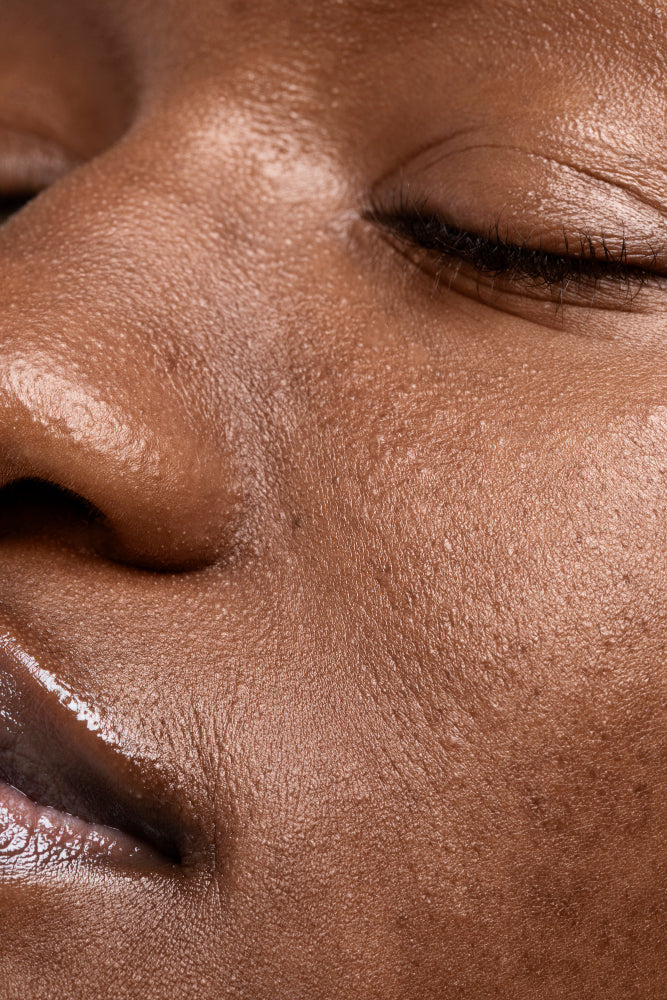When it comes to skincare, one size does not fit all, especially for individuals with black and brown skin. Many factors contribute to maintaining a healthy complexion, and one common concern is managing over-sebaceous activity, which often results in oily skin and enlarged pores. In this comprehensive guide, we'll delve into these issues, explore their unique impact on black skin, and provide actionable tips and product recommendations to help you achieve a radiant, shine-free complexion.
Table of Contents
1. Understanding Over-Sebaceous Activity
2. The Unique Challenges for Black Skin
3. The Oily Skin Dilemma: Causes and Effects
4. How to Manage Over-Sebaceous Activity
5. Product Recommendations for Black Skin
1. Understanding Over-Sebaceous Activity
2. The Unique Challenges for Black Skin
Individuals with black and brown skin often face distinct challenges when it comes to managing over-sebaceous activity. These include:
• Hyperpigmentation: Oily skin can exacerbate hyperpigmentation concerns, as excess oil can trap melanin and lead to the formation of dark spots or acne scars that are more visible on darker skin tones.
• Uneven Texture: Oily skin can contribute to an uneven skin texture, making it crucial to address excess oil production for a smoother complexion.
• Sensitivity: Black and brown skin can be more sensitive, so it's essential to choose products that effectively manage oil without causing irritation or inflammation.
3. The Oily Skin Dilemma: Causes and Effects
Causes of Oily Skin:
• Genetics: Genetic factors play a significant role in determining your skin type. If your parents have oily skin, there's a higher chance you will too.
• Hormonal Changes: Hormonal fluctuations, particularly during adolescence, pregnancy, or menstruation, can stimulate sebum production.
• Humidity and Climate: Living in a hot and humid environment can trigger excess oil production.
Effects of Oily Skin:
• Enlarged Pores: The excess sebum can clog and stretch pores, making them appear larger and more prominent.
• Acne and Breakouts: Oily skin is more prone to acne and breakouts due to the increased likelihood of clogged pores.
• Shine and Discomfort: Oily skin often feels greasy and can look excessively shiny, leading to discomfort and a lack of confidence.
4. How to Manage Over-Sebaceous Activity
Managing over-sebaceous activity and oily skin requires a well-rounded skincare routine tailored to your unique needs.
Here are some effective steps to get you started:
• Gentle Cleansing: Use a gentle, sulfate-free cleanser twice a day to remove excess oil, dirt, and makeup without stripping the skin's natural moisture.
• Exfoliation: Incorporate exfoliation into your routine to help remove dead skin cells that can contribute to clogged pores. Opt for chemical exfoliants like salicylic acid, which is effective for oily skin.
• Balanced Hydration: Don't skip moisturizer. Opt for an oil-free, hydrating formula to maintain the skin's moisture balance.
• Use a Toner: A toner with ingredients like witch hazel or niacinamide can help control excess oil and minimize the appearance of pores.
• Spot Treatments: Consider spot treatments with ingredients like benzoyl peroxide or sulfur for acne-prone areas.
• Sunscreen: Always wear sunscreen with an SPF of 30 or higher to protect your skin from UV damage. Look for a non-comedogenic option to avoid clogging pores.
5. Product Recommendations for Black Skin
Choosing the right products for black and brown skin is crucial. Here are some product recommendations for managing oily skin and enlarged pores:
• Cleanser: Try a gentle cleanser like the “Xcape Cleanser,” which is a cleanser and mild exfoliant specifically formulated for black skin. It combines salicylic acid and glycolic acid to unclog pores and improve skin texture.
• Moisturizer: Opt for an oil-free, hydrating moisturizer.
• Sunscreen: Use a broad-spectrum Sun Protector from SPF 30 that does not clog pores.

